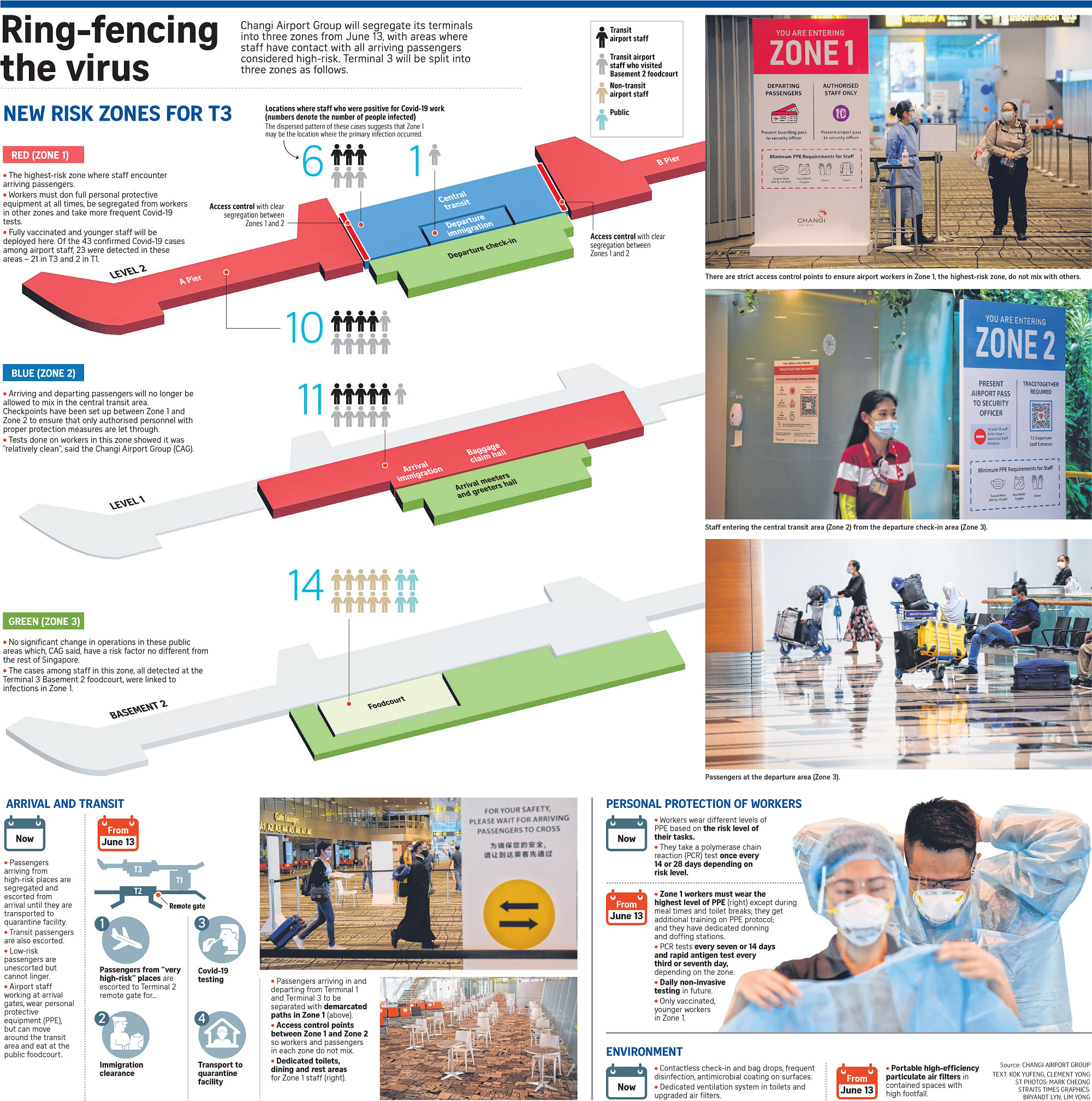The PAP government kept saying that it is not possible to close borders permanently to keep out imported covid-19 cases.
That is a strawman argument, deflecting from the real issues.
The real issues:
- Sinkies did not say close the borders permanently.
- Sinkies said ban arrivals for a short period. And Sinkies were right because the PAP government belatedly banned arrivals from South Asia.
But, the real issue is, why did the PAP government keep allowing imported cases in?
All incoming travellers are required to test negative for covid-19 before they can embark on the plane.
Questions:
- Why are positive cases allowed onto the plane?
- Were the fest results faked?
- Are the airlines allowing positive cases to board their planes?
After so many months of imported cases, the PAP has done nothing to stop this.
- No banning of airlines like what Hong Kong has done
- No tightening of screening of incoming passengers
- No checking of the agencies who did the covid-19 tests
And where is the editorial independence of the Straits Times?
Why didn't any journalist write an investigative article about this?
It takes a Sinkie to write a letter to the forum to bring this up.
Am actually surprised that the letter got published.
Forum: Should airlines that repeatedly fly in imported Covid-19 cases be penalised?
May 13, 2021
The view expressed in the letter "Complete border closure not feasible here" (May 7) is one that has been heard frequently.
Singapore has been seeing imported cases of Covid-19 since this pandemic began, with many cases coming from a few higher-risk countries.
All passengers bound for Singapore, except Singaporeans and permanent residents, must be certified negative for Covid-19.
Despite this requirement, there continue to be non-Singaporean and non-PR imported cases.
Singapore's Covid-19 situation is under control because almost everyone does his part in complying with prevailing measures and practices. Those who do not are dealt with accordingly, and rightly so.
So, should airlines that repeatedly fly in imported cases be penalised too?
This is the case in Hong Kong, which temporarily bars airlines for flying in passengers who test positive for Covid-19.
Without punitive action, why should airlines comply with Covid-19 entry requirements?
Yes, closing Singapore's borders completely would affect our manpower situation, and impact businesses and the economy.
But businesses and the economy will also be impacted if there continue to be more imported Covid-19 cases from high-risk countries, and of a more virulent strain, leading to a rise in local community cases, clusters being formed, and the prospect of another circuit breaker.
Tan Soon Hock
That is a strawman argument, deflecting from the real issues.
The real issues:
- Sinkies did not say close the borders permanently.
- Sinkies said ban arrivals for a short period. And Sinkies were right because the PAP government belatedly banned arrivals from South Asia.
But, the real issue is, why did the PAP government keep allowing imported cases in?
All incoming travellers are required to test negative for covid-19 before they can embark on the plane.
Questions:
- Why are positive cases allowed onto the plane?
- Were the fest results faked?
- Are the airlines allowing positive cases to board their planes?
After so many months of imported cases, the PAP has done nothing to stop this.
- No banning of airlines like what Hong Kong has done
- No tightening of screening of incoming passengers
- No checking of the agencies who did the covid-19 tests
And where is the editorial independence of the Straits Times?
Why didn't any journalist write an investigative article about this?
It takes a Sinkie to write a letter to the forum to bring this up.
Am actually surprised that the letter got published.
Forum: Should airlines that repeatedly fly in imported Covid-19 cases be penalised?
May 13, 2021
The view expressed in the letter "Complete border closure not feasible here" (May 7) is one that has been heard frequently.
Singapore has been seeing imported cases of Covid-19 since this pandemic began, with many cases coming from a few higher-risk countries.
All passengers bound for Singapore, except Singaporeans and permanent residents, must be certified negative for Covid-19.
Despite this requirement, there continue to be non-Singaporean and non-PR imported cases.
Singapore's Covid-19 situation is under control because almost everyone does his part in complying with prevailing measures and practices. Those who do not are dealt with accordingly, and rightly so.
So, should airlines that repeatedly fly in imported cases be penalised too?
This is the case in Hong Kong, which temporarily bars airlines for flying in passengers who test positive for Covid-19.
Without punitive action, why should airlines comply with Covid-19 entry requirements?
Yes, closing Singapore's borders completely would affect our manpower situation, and impact businesses and the economy.
But businesses and the economy will also be impacted if there continue to be more imported Covid-19 cases from high-risk countries, and of a more virulent strain, leading to a rise in local community cases, clusters being formed, and the prospect of another circuit breaker.
Tan Soon Hock





